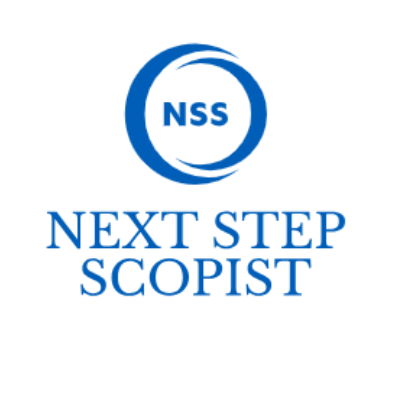June 29th, 2024 – Code of Conduct and Ethics in Scopistry

To behave ethically is one of the main responsibilities in any profession. Scopistry is no different. Ethics are not always objective: they can have different manifestations for different people. In my opinion, it is everyone’s individual responsibility to decide what is ethical and behave in a way that makes you comfortable and proud. I also believe that knowledge is power, and that learning what other people believe to be ethical can go a long way in influencing your own behavior towards others.
I heard a quote once, “If someone tells you you’ve hurt them, you don’t get to tell them they’re wrong.” It was with this mindset that I set out to find some common rules and ethics in scopistry. It is never my intention to cause harm to others. To ensure I prevent this behavior rather than react to it, I wanted to know what can be considered “bad behavior” in scopistry and avoid it.
Today, I want to talk about some of the common behaviors I have found that scopists (myself included) adhere to in order to remain ethical and conduct themselves respectfully in scopistry.

Confidentiality
Maintaining privacy within our profession is of the utmost importance for ethics in scopistry for several reasons. There are a number of devastating outcomes that can occur if one is rather loose-lipped with the information they’ve been trusted with. A general idea of “If it’s not mine, don’t say it” is always good, but there are some specific considerations to have.
Of the transcript
These are legal documents. The material contained within the transcript is not always considered a matter of public record and is protected under certain laws, codes, and regulations. It is our responsibility to ensure that this information is not available for others to see if they have not been given explicit access to it by the original owner.
These are some of the worst moments of people’s lives. If it wasn’t enough that you may be legally required not to share this information, think about it from a personal perspective. The witnesses sworn to tell the truth did not do so expecting that their information and testimony would be available for every Tom, Dick, and Harry who was slightly curious about their experience. You have no idea how these people feel about the things produced in these transcripts, and it is our ethical responsibility in scopistry to express some compassion and empathy towards them in regards to the information they share in their legal proceedings.
Of the client
In this line of business, trust is of the utmost importance. Trust to do your job well, to adhere to guidelines, and to respect privacy. Earning the trust of your client is how you maintain that client and continue to earn their business in the future. There is nothing worth throwing that away for.
It is because of this that a rule of ethics in scopistry is to maintain the privacy of your clients. There is nothing they say, do, or provide to you that you should consider available to others unless your client specifically expresses it. In positive business relationships, maintaining this trust is crucial.
Of anyone else’s business, affairs, and reputation
I am a proponent of “Stay in your lane.” Mind your business, keep your nose in your work, and focus on achieving your own goals. There are a lot of examples of how this has been disregarded in every profession. Something to consider before you do anything is think about how this action furthers your goals, how it could damage others, and what you stand to lose in the eyes of others and in your own eyes. And ask yourself if you can live with that.
I’ve caught myself in situations both professionally and personally where I’ve been driven by emotion to act. I have to stop myself beforehand and ask these questions: Who benefits from this action? Who can be hurt by this action? How will people view me or treat me once this action has been performed? In five years time, if I look back on this action, will I be proud of how I handled this situation?

Never Sacrifice Quality
The quality of the work you produce should be your highest priority. Being a person who can be relied on to get the job done, do it well, and do it on time is a reputation you don’t want to sacrifice. It is our obligation to do our best, to provide what has been asked for to the best of our abilities, and to continue to build our skills and knowledge. This is the foundation of being a good scopist, along with the ethics in scopistry. There are several ways you can do this.
First, focus on maintaining a positive, encouraging working environment. Limit your distractions, manage your time appropriately, and be aware of your limits. Take breaks when you need to. Don’t accept work that will interfere with the time you can give to other projects. Keep your mind and body healthy and focused. Try to keep a positive attitude, and seek guidance or help where necessary.
Second, scopistry is a growing field, so you should be a growing scopist. Learn new things, try new methods, and find better ways. These things are all excellent tools for improving your work quality and ensuring you are always producing the best work you can. It benefits no one for you to learn nothing and try nothing. Try things that will make you a better scopist, learn new skills that will help you better assist your clients, and be open to feedback from others who are looking out for your best interest.

Professionalism
Professionalism is a large term within ethics in scopistry, and it can encompass all of the things I have listed above. However, in this section, I’d like to focus specifically on how you conduct yourself and your behavior with other scopists and clients within the standards of ethics in scopistry. There are some universal behavior expectations, which I will not outline here as they may be more common knowledge. Instead, I want to focus on things that are more specifically aimed at clients and colleagues.
With clients
There are two things I think are of the utmost importance when dealing with a client professionally and ethically: respect their time and respect their authority.
You are here to do a job for them. They have asked for your assistance and have trusted you to conduct yourself respectfully. Don’t push their deadlines. Agree on a turnaround date ahead of time, and don’t accept work if you think you can’t meet the deadline they’ve asked for. If you begin working on the transcript and realize it requires much more time and bandwidth than you originally anticipated, be upfront about it as soon as possible. Do not wait until the last minute to tell your client that you can’t complete the work as agreed upon. Give them enough notice to seek other options or aid. They have deadlines too, and people rely on them to meet those deadlines.
In the very beginning, before you accept work, have your potential client fill out a preference sheet. Ask them how they want certain things edited. Each client will have different specifications and requirements, and it is your job to fulfill those requirements, not question them. If you have questions about a style or concerns about an editing preference, bring those up during your contact meetings before you’ve accepted the job. Don’t leave hundreds of notes in the transcript for your client to review later. Have these conversations ahead of time so you can understand their motivations and ideas, and do your best to adhere to the guidelines they’ve set out. Remember: You’re a guest in this house.
With colleagues
There is definitely a code of conduct when working as a freelancer. Some industries are huge and you can go your whole life without meeting another person who works in your field. Others are much smaller. Scopistry is growing but it is a small enough field.
The rule here is, again, “Stay in your lane.” You can damage a good reputation by being ruthless, cutthroat, and ambitious to the point of detriment. Remember to respect spaces that are not yours. If you’re a backup for another scopist, don’t step on their toes by trying to undercut or steal a happy client from them. If you’re in competition with other scopists for a job, don’t negate their hard work or abilities by referring negatively to them as a way to boost yourself up. I wrote a post way back in the beginning, Make Friends, Not Enemies. I stand by it and I always will. You say a lot more about yourself when you bring others down than you ever could about them.
Similar to how you conduct yourself with clients, respect the guidelines and regulations set out by other scopists. If you’re a backup for another scopist, make sure to get their preferences in writing (preference sheets are incredibly convenient!) They may be accepting work from a client with specific requirements, and you must also meet these requirements. This rule applies to deadlines. Don’t accept work you can’t complete in the time it needs to be completed. If you start doing the work and realize it will take more time than you have, make sure to give proper notice. You signed on to be a problem solver. If you can’t solve the problem, let them have an opportunity to find a different solution.
It’s not only your reputation on the line, it’s theirs. You need to be respectful of the rules they themselves have to follow.
Above all, remember: You are a guest in this house.

Communicate
I advocate for good communication in every facet of my life. My career is no different.
It is inevitable that you will run into problems at some point or another. Sometimes the problems are easy to fix, and sometimes they’re not. You may need to have an awkward conversation or two but I assure you, those conversations are necessary.
If a problem arises, you need to address it personally, and immediately. You can’t reach a deadline, you need to make that clear as soon as possible. If you have questions about a style choice or an editing decision, you need to ask immediately. When you feel like you’re not being treated fairly, you need to address the person who is causing that issue as soon as it becomes a problem for you. If you have made a mistake, you need to address it and fix it as soon as you possibly can.
You gain nothing from avoiding these conversations, and you stand to lose more and more the longer you go without having them.
A lot of times, we build these conversations up in our heads to be a lot worse than they truly are, and that convinces us that it is better not to have them. I promise you, it’s not. Unresolved issues will only fester, and they will grow from little problems to potentially, very big problems.
—-
As I said before, ethics in any field, including ethics in scopistry, are not objective. There are a lot of differences of opinion. This is mine. These are rules that I follow and guide my conduct after. I think the most important thing to consider in any field is, “Am I proud of the person I am behaving as?” If the answer is no, you need to make some adjustments. If you liked this post, make sure to come back for a new post on the Next Step Scopist blog!
—-
Home Page | Blog Home Page
Last Post: Why Did I Choose The Name, ‘Next Step Scopist’?
Next Post: Differences Between Scopists And Court Reporters

Leave a Reply